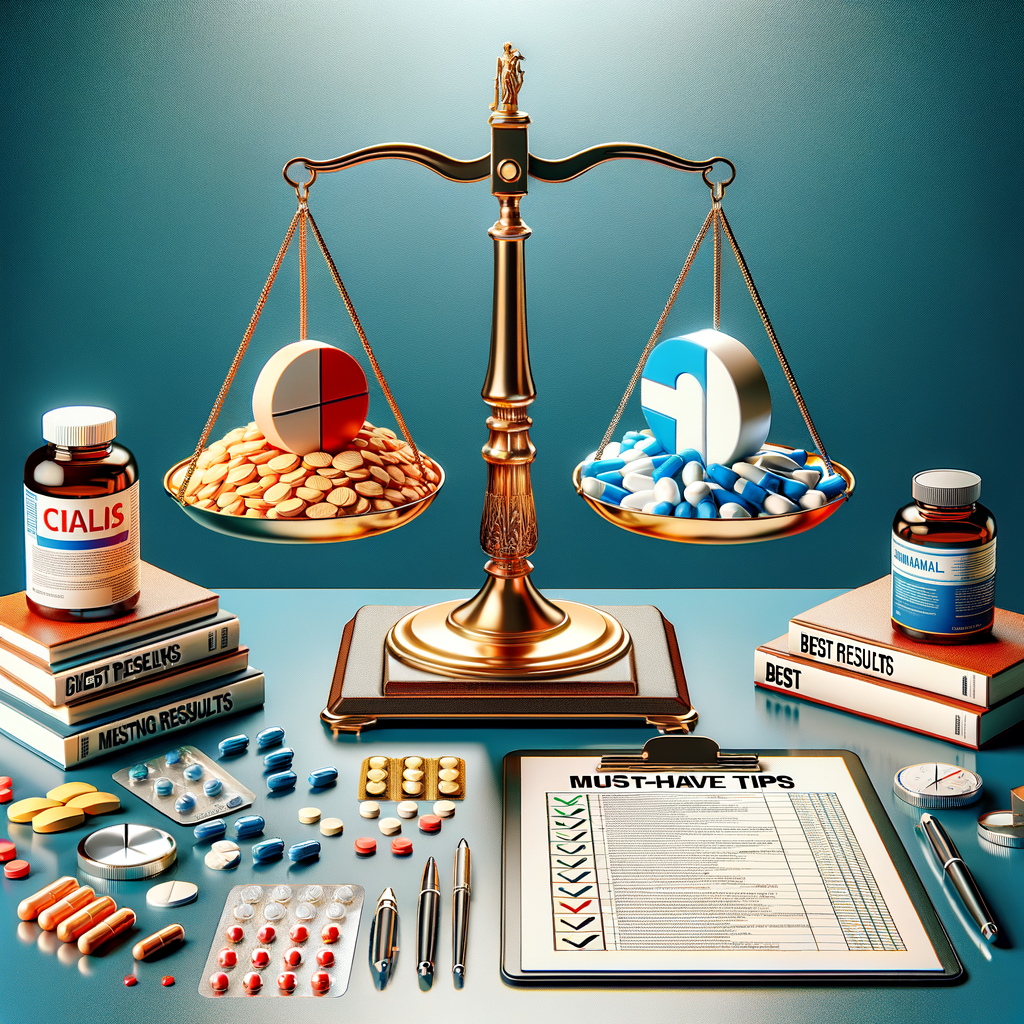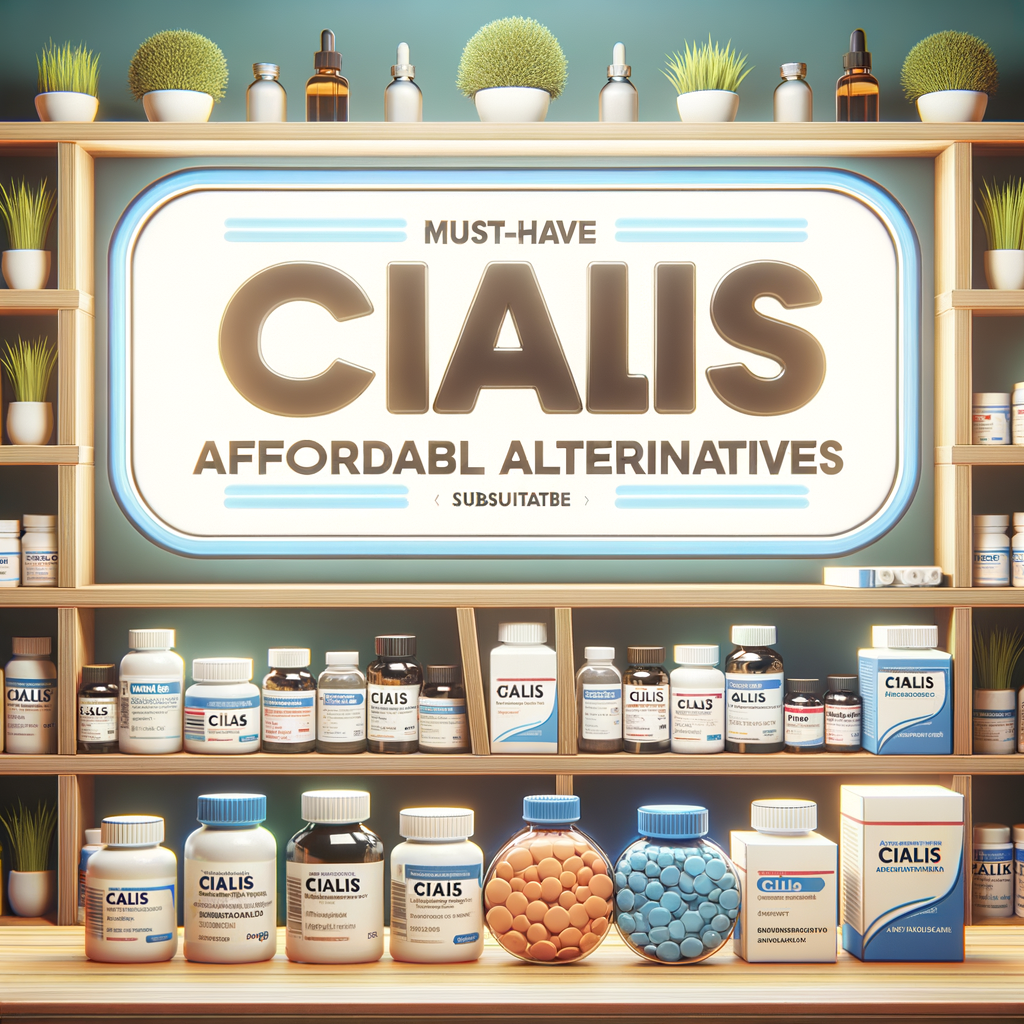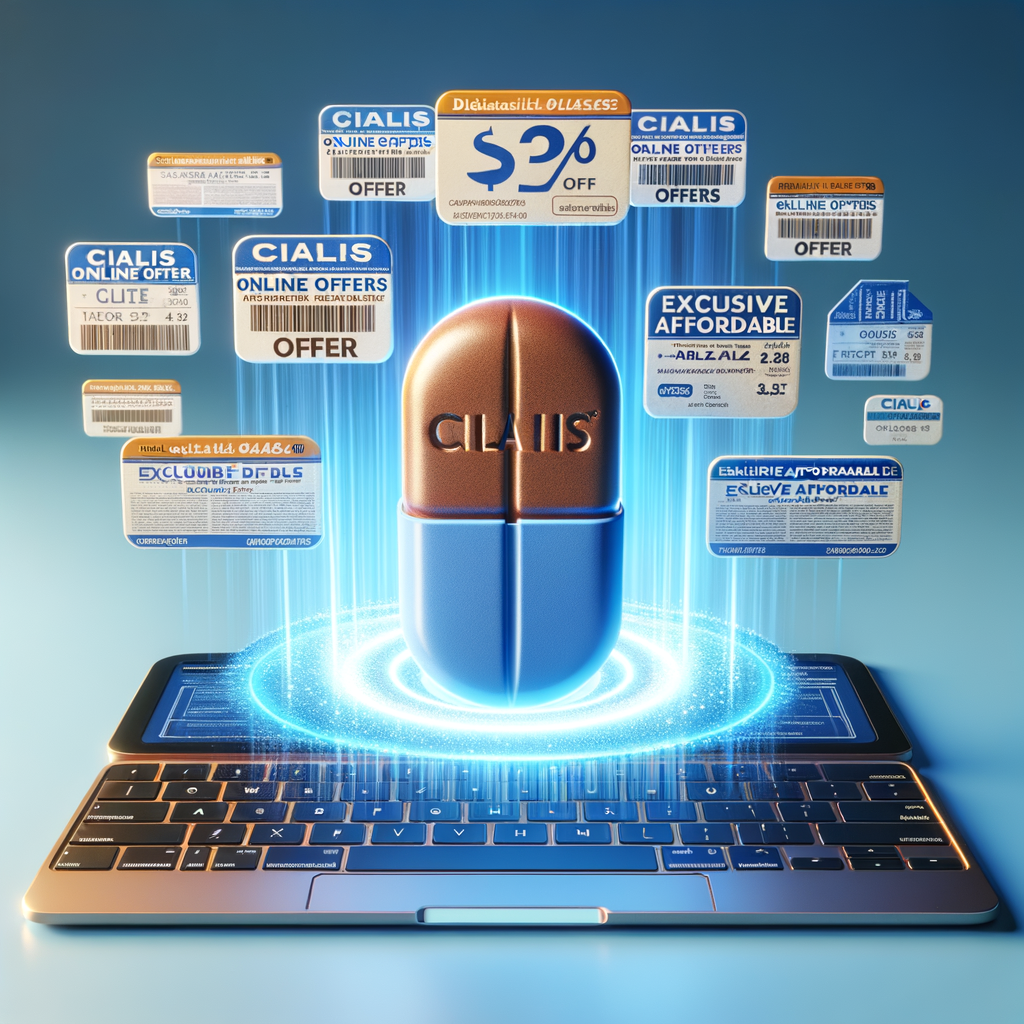- Introduction
- How Cialis and Sildenafil Work
- Onset and Duration: What to Expect
- Dosage Options and Forms
- Which Is More Effective?
- Side Effects: What to Watch For
- Drug Interactions and Contraindications
- Choosing the Right Option
- Tips for Best Results: Taking the Medications
- Lifestyle Tips to Maximize Effectiveness
- Psychological and Relational Factors
- Special Situations: Older Men and Comorbidities
- Using PDE5 Inhibitors with Other Treatments
- Managing Side Effects and When to Stop
- Common Myths and Misconceptions
- Practical Comparison Table
- Cost and Access Considerations
- When to See a Doctor
- Using Medication Safely with a Partner
- Travel, Alcohol, and Special Occasions
- What to Expect in Follow-Up Visits
- Alternatives When Pills Don’t Work
- Emerging Treatments and Research
- Summary and Final Recommendations
- Frequently Asked Questions (FAQs)
- References
Introduction
Many men face erectile dysfunction (ED) at some point. When that happens, two drugs often come up in conversation: Cialis and sildenafil. Both improve blood flow to the penis and help men get and keep an erection. Still, they differ in ways that matter.
This article compares Cialis vs sildenafil and gives practical tips for the best results. You will learn how each drug works, their timing, side effects, and how to choose the right option. I will also offer actionable tips to boost effectiveness and safety.
How Cialis and Sildenafil Work
Both drugs belong to a class called PDE5 inhibitors. They block the enzyme phosphodiesterase type 5 (PDE5). As a result, the body maintains higher levels of cyclic GMP. This chemical relaxes smooth muscle and widens blood vessels in the penis. Consequently, blood can flow in more easily during sexual arousal.
However, the two molecules act with different speeds and durations. Sildenafil usually starts working faster but wears off sooner. Cialis often takes a bit longer to begin but lasts much longer. These differences shape how people use them and which situations they fit best.
Onset and Duration: What to Expect
Sildenafil typically starts working within 30 to 60 minutes. For many men, it works by 30 minutes, but some need an hour. Its effects last about 4 to 6 hours. Therefore, sildenafil suits planned sexual activity within that time frame.
Cialis can start working in about 30 minutes too, but sometimes takes up to two hours. Crucially, Cialis lasts much longer—up to 36 hours for the standard dose. This extended window gives more spontaneity. As a result, many men prefer Cialis when they want flexibility instead of precise timing.
Dosage Options and Forms
Sildenafil most commonly comes as 25 mg, 50 mg, and 100 mg tablets. You take it as needed before sex. Meanwhile, Cialis offers both as-needed doses (5, 10, 20 mg) and a low-dose daily option (2.5 or 5 mg daily). The daily option supports more spontaneous activity because the drug maintains steady levels.
Both drugs come as film-coated tablets. Some manufacturers also offer generics and different brands. Importantly, you should start with the lowest effective dose. Your healthcare provider can adjust up or down depending on results and side effects. Never mix doses without medical advice.
Which Is More Effective?
Clinical trials show both drugs work well for many men. However, “more effective” depends on your needs. Sildenafil provides reliable results during its 4 to 6-hour window. Men who plan sex and prefer shorter duration often like sildenafil.
Cialis stands out for its long duration. Men who want spontaneity or sexual activity across a weekend may prefer it. Studies show comparable overall effectiveness between the two. Your response may vary due to medical conditions, age, or other medications.
Side Effects: What to Watch For
Both drugs share common side effects such as headache, flushing, nasal congestion, and upset stomach. Vision changes and muscle pain can occur too, though less commonly. Cialis tends to cause muscle aches more often. Sildenafil can cause temporary changes in color vision for some men.
More serious side effects include sudden hearing loss or vision loss, though these are rare. Also, both drugs can cause priapism—an erection lasting more than four hours. If that happens, seek emergency care. Always report severe side effects to your provider promptly.
Drug Interactions and Contraindications
Both drugs interact dangerously with nitrates used for chest pain. Mixing them can drop blood pressure sharply and cause fainting or worse. Also, alpha-blockers for prostate problems or blood pressure can interact. Your doctor should manage dosing to reduce risk.
Other medications such as certain antifungals, antibiotics, and HIV protease inhibitors can raise drug levels in the blood. Consequently, your dose may need lowering. Always list all medications and supplements to your prescriber. Never take either drug without checking interactions first.
Choosing the Right Option
Start by talking to your healthcare provider. They will review your health, medications, and preferences. If you want on-demand control and shorter effects, sildenafil may fit you. If you prefer a longer window and more spontaneity, Cialis might work better.
Consider cost and access as well. Generic sildenafil often costs less than brand-name tadalafil (Cialis), though generics for tadalafil also exist. Insurance coverage varies, so check your plan. Finally, factor in side effects and your heart health when deciding.
Tips for Best Results: Taking the Medications
Take sildenafil on an empty stomach for faster onset. A heavy or fatty meal delays absorption and slows onset. By contrast, Cialis is less affected by food. Still, taking either drug consistent with timing helps you predict results.
Start with the lowest recommended dose. If you get mild side effects, wait and report them. Don’t take more than one dose in 24 hours for sildenafil unless your doctor advises otherwise. For Cialis daily, take the same time each day to keep levels steady.
Lifestyle Tips to Maximize Effectiveness
Lifestyle changes often boost medication effectiveness. Exercise helps blood flow and reduces ED risk. Aim for at least 150 minutes of moderate exercise weekly. Also, maintain a healthy weight and eat a balanced diet rich in fruits, vegetables, and whole grains.
Quit smoking and limit alcohol. Smoking damages blood vessels and reduces drug response. Alcohol interferes with sexual function and may worsen side effects. Manage stress through mindfulness, therapy, or support groups as needed.
Psychological and Relational Factors
ED often has physical and psychological causes. Anxiety, depression, and relationship stress can hinder performance. Address these factors through counseling or sex therapy. You will likely see better results when you treat both mind and body.
Communicate with your partner openly. Explain what the drug does and how you wish to use it. Shared understanding reduces pressure and improves intimacy. Also, consider couples therapy if stress or communication blocks exist.
Special Situations: Older Men and Comorbidities
As men age, ED becomes more common. Older men often take medications for heart disease, diabetes, and prostate issues. These conditions can affect ED treatment choices. Work with your doctor to tailor therapy safely.
Kidney or liver impairment can change how the body clears these drugs. Lower doses or longer intervals may be necessary. Also, men with severe heart disease should not use these drugs without a cardiology consult.
Using PDE5 Inhibitors with Other Treatments
Sometimes ED needs more than one approach. Your doctor may combine PDE5 inhibitors with testosterone therapy if low hormone levels contribute. Vacuum devices, injections, or penile implants remain valuable options when pills fail.
When injections or vacuum devices work poorly alone, combining them with medication can improve results. Always follow clinical guidance. Combining treatments requires careful monitoring for safety and effectiveness.
Managing Side Effects and When to Stop
If side effects become bothersome, talk to your provider. They may lower your dose or switch drugs. For mild side effects, over-the-counter remedies like paracetamol can help headaches. However, never mix medications without advice.
Stop the drug and seek immediate help for an erection lasting over four hours. Also, get urgent care for sudden vision or hearing loss. For rare allergic reactions—such as rash, swelling, or trouble breathing—call emergency services.
Common Myths and Misconceptions
Myth: PDE5 inhibitors cause heart attacks. Reality: They rarely cause serious heart events directly. However, sexual activity can strain the heart. That’s why men with unstable heart disease need evaluation first.
Myth: These drugs increase sexual desire. Reality: They help blood flow but do not raise libido. Testosterone or counseling may help when low desire exists. Expect improved function, but not increased sexual interest.
Practical Comparison Table
| Feature | Sildenafil (Viagra) | Cialis (Tadalafil) |
|---|---|---|
| Typical onset | 30–60 minutes | 30–120 minutes |
| Duration | 4–6 hours | Up to 36 hours (or daily low dose) |
| Common doses | 25, 50, 100 mg | 2.5, 5, 10, 20 mg |
| Food effect | High-fat meals delay onset | Less affected by food |
| Daily option | No | Yes (low-dose daily) |
| Distinct side effect | Vision changes (rare) | Muscle/back pain (more common) |
Cost and Access Considerations
Generic versions of both drugs exist and lower costs significantly. Generic sildenafil often costs less than brand-name tadalafil, but prices vary. Online pharmacies and local drugstores offer competitive prices. However, buy only from reputable sources.
Avoid medications from unknown online sellers. Some pills are counterfeit, unsafe, or contain wrong dosages. Ask your pharmacist or doctor if a price seems unusually low. Insurance may cover ED drugs sometimes, especially when tied to medical conditions. Check your policy.
When to See a Doctor
See your doctor if ED appears suddenly or with other worrying symptoms. Sudden onset may signal a circulatory or neurological issue. Also, get evaluated if ED persists despite lifestyle changes and medication.
Consult a specialist if you have complex heart disease, recent stroke, or uncontrolled high blood pressure. Your provider can run tests to find underlying causes. They can also recommend the safest and most effective treatment plan.
Using Medication Safely with a Partner
Talk openly about expectations and concerns. Using medication together can reduce performance pressure. Also, discuss timing and possible side effects that could affect intimacy.
If your partner also has health conditions, make sure both of you stay informed. Avoid sharing medication and never pressure someone to take a drug. Good communication improves experience and safety.
Travel, Alcohol, and Special Occasions
When traveling, pack enough medication and keep it in original packaging. Bring a copy of your prescription to avoid customs issues in some countries. Also, consider time-zone changes when dosing daily tadalafil.
Limit alcohol during sexual activity. Excess alcohol can reduce the drug’s effect and increase side effects. For special occasions, plan ahead. Remember that Cialis offers more spontaneity, while sildenafil may require more precise timing.
What to Expect in Follow-Up Visits
Your doctor will assess both benefit and side effects after starting therapy. They will ask about erection quality, timing, and satisfaction. They may also adjust doses or try a different agent based on your feedback.
Expect basic tests if underlying conditions are suspected. These can include blood sugar, cholesterol, testosterone, or heart tests. Good follow-up ensures both safety and better outcomes.
Alternatives When Pills Don’t Work
If pills fail or cause intolerable side effects, other options exist. Vacuum erection devices create a mechanical erection by drawing blood into the penis. Penile injections of vasodilator drugs work quickly and often when pills fail. Surgery, such as penile implants, provides a permanent solution for severe cases.
Each alternative has pros and cons. Vacuum devices avoid systemic drug effects but require manual use. Injections can cause pain or scarring. Surgical options involve recovery time but can yield reliable outcomes.
Emerging Treatments and Research
Researchers explore new PDE5 inhibitors and combination therapies to improve outcomes. Low-intensity shockwave therapy shows promise for restoring blood flow in some men. Stem cell and regenerative approaches remain experimental but interesting.
Keep in mind that new options may take years to reach mainstream practice. Always rely on established medical advice until treatments gain clear evidence and approval.
Summary and Final Recommendations
Both Cialis and sildenafil help millions of men with ED. Your choice should reflect timing needs, side effect tolerance, medical history, and cost. Talk with your doctor and consider a trial of each drug if deemed safe.
Follow practical tips: start low, time doses properly, avoid nitrates, and adopt healthy habits. Keep communication open with your partner. With the right approach, you can improve sexual health and quality of life.
Frequently Asked Questions (FAQs)
1. Can I take Cialis or sildenafil every day?
– Cialis has a low-dose daily option. Sildenafil is usually taken as needed. Daily sildenafil is not standard. Always follow your doctor’s advice.
2. What if my medication doesn’t work the first time?
– Try it on multiple occasions under proper conditions. Sometimes anxiety, food, or alcohol affects results. Talk to your doctor if it still fails.
3. Are generics as good as brand-name drugs?
– Yes. Generics contain the same active ingredient and strength. Buy from reputable pharmacies to ensure quality.
4. Can these drugs affect fertility?
– Evidence does not show major effects on sperm in most men. If fertility is a concern, discuss it with a specialist.
5. Can women use these medications?
– These drugs are not approved for sexual dysfunction in women. Some studies explored off-label use, but results vary. Women should consult a healthcare provider.
6. How do these drugs interact with recreational drugs?
– Combining PDE5 inhibitors with nitrates or certain recreational drugs (like poppers containing nitrites) can be dangerous. Avoid such mixes and get medical advice.
7. Do I need blood tests before starting treatment?
– Not always. If you have risk factors like heart disease, diabetes, or liver issues, your doctor may order tests. These identify underlying causes and risks.
8. Can ED drugs cause addiction?
– No. They are not addictive physiologically. However, some men may develop psychological reliance on them for confidence.
9. How long do I wait to try the other drug if one fails?
– Check with your doctor. Generally, wait at least 24–48 hours before trying a different PDE5 inhibitor. The exact timing depends on the drug and dose.
10. Are there natural alternatives that really work?
– Some lifestyle changes do improve ED: exercise, weight loss, and quitting smoking. Supplements claim benefits, but evidence is limited. Discuss any supplement with your doctor before use.
References
– U.S. Food and Drug Administration — Erectile Dysfunction: https://www.fda.gov/drugs/understanding-efficacy-and-safety/erectile-dysfunction
– American Urological Association — Erectile Dysfunction Guidelines: https://www.auanet.org/guidelines-and-quality/clinical-guidelines
– Mayo Clinic — Erectile dysfunction: https://www.mayoclinic.org/diseases-conditions/erectile-dysfunction/diagnosis-treatment/drc-20355782
– NHS — Erectile dysfunction: https://www.nhs.uk/conditions/erection-problems/
– Drugs.com — Sildenafil: https://www.drugs.com/sfx/sildenafil-side-effects.html
– Drugs.com — Tadalafil: https://www.drugs.com/sfx/tadalafil-side-effects.html


